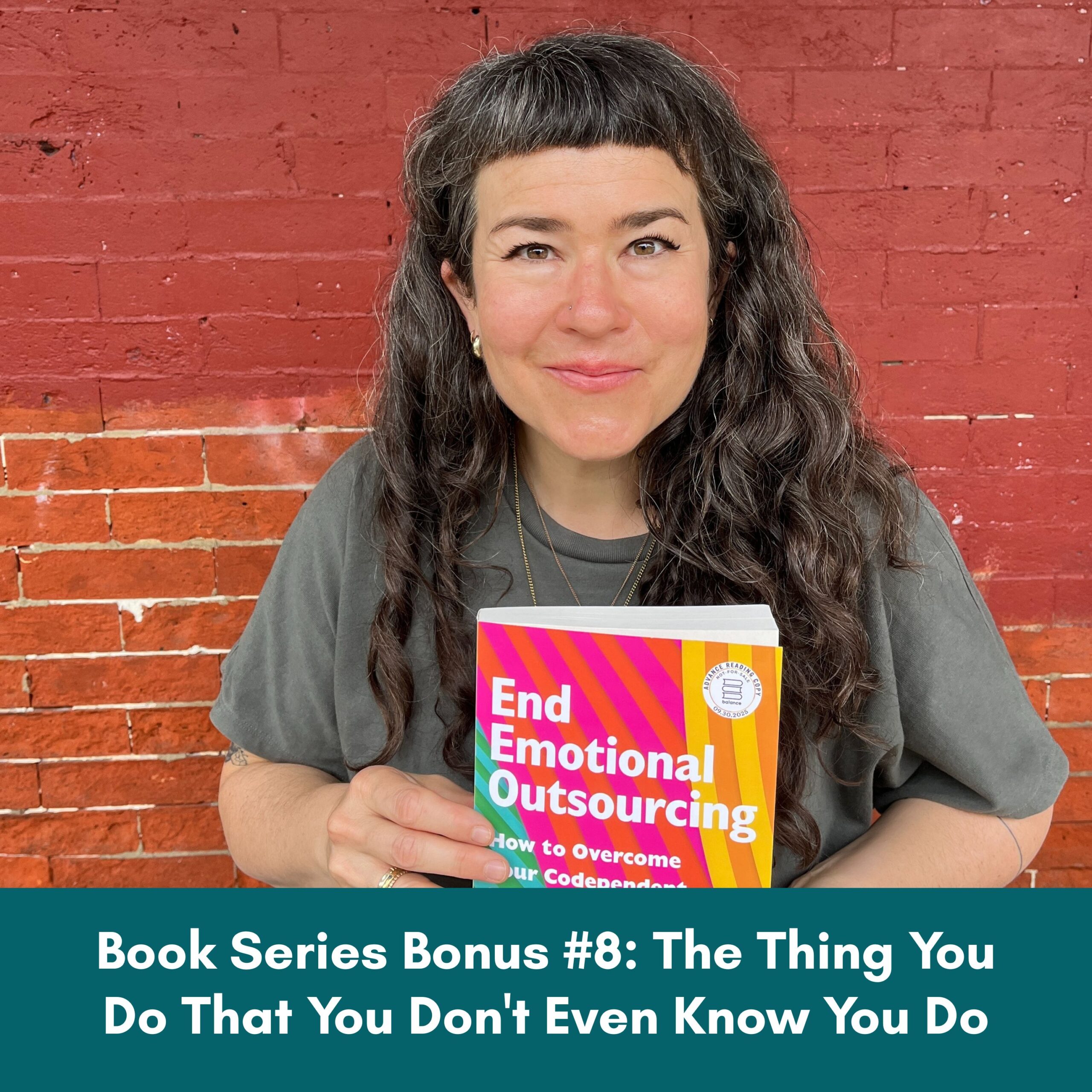Book Series Bonus #8: The Thing You Do That You Don’t Even Know You Do
Do you pride yourself on being “super intuitive,” the one who can read a room in seconds, sense a shift in someone’s energy over text, or predict disappointment before it even hits? You are not broken. You may simply be running a nervous system pattern I call emotional outsourcing, and you do not have to keep living this way.

The Client Story That Says It All
I had a client, Teresa, who described herself as the human version of a mood ring. She could detect disappointment before the other person even knew they were disappointed. People around her praised her as empathetic, the perfect friend, the one who always knew what others needed.
And while she did care deeply, what was really happening underneath was strategy. Her nervous system had decided that monitoring others’ moods was her best shot at staying safe.
One night at 3 a.m., during her usual “anxiety audit,” she heard a voice rise from deep within:
“You don’t know how to feel okay unless someone else tells you that you are.”
That moment was her first glimpse of what emotional outsourcing really is.
What Emotional Outsourcing Looks Like
- Checking someone’s face before you let yourself know what you feel
- A full body panic when someone you love is disappointed in you, even when logic says you did nothing wrong
- Craving validation not just for reassurance, but as your GPS for safety
It is not just people pleasing with a fancy name. It is a nervous system strategy that makes other people your mirror, your compass, and your security system all at once.
Why We Learn This Pattern
Many of us grew up in families where caregivers’ moods set the tone for whether we felt safe. Teresa’s dad’s bad mood meant danger. Her mom’s stress meant chaos. Her siblings’ anxiety meant her needs were overlooked.
Her brilliant body adapted. It said: anticipate everyone’s needs and maybe you will stay safe.
This adaptation is not a flaw. It is a survival skill. But it comes at a cost.
The Science Behind Emotional Outsourcing
- Hyperactive mirror neurons: Constantly absorbing others’ emotions to predict rejection
- Sympathetic arousal: A chronic fight or flight state that keeps you scanning for social threats
- Neural rewiring: Pathways for sensing others strengthen while pathways for sensing yourself weaken
When this becomes chronic, the ventral vagal complex, the part of the nervous system that supports safe social connection, shuts down.
The Hidden Costs
Relationships
You become fluent in everyone else’s needs and illiterate in your own. You end up choosing their comfort over your clarity.
Health
Headaches, digestive issues, bone-deep fatigue, brain fog. The body keeps score when we abandon ourselves.
Identity
Over time, you forget who you are outside of being the caretaker, the peacemaker, the one who smooths over every crack in the room.
How to Start Coming Home to Yourself
Step 1: Notice the outsourcing.
Catch yourself when you check others’ moods before checking your own.
Step 2: Listen inward.
Practice interoception. Pause to ask what you feel in your body without looking outward for confirmation.
Step 3: Validate yourself.
Remember: your nervous system is not broken. These patterns are adaptations, not character flaws.
Step 4: Build safety inside.
Explore grounding practices, self-soothing strategies, and somatic tools that help you reconnect with your own inner cues.
Relationship Red and Green Flags
Red Flags
- People who reward your self-erasure
- Environments that equate goodness with compliance
- Relationships where safety always feels conditional
Green Flags
- People who honor your feelings as real without needing proof
- Communities that celebrate your authenticity
- Relationships where mutual care feels safe and sustainable
The Ripple Effect of Trusting Yourself
When you stop outsourcing your worth and safety:
- You remember what clarity feels like
- You build a foundation under your own feet
- You strengthen authentic boundaries and connection
- You reclaim your right to your own life
Your Permission Slip
You were not put here to be everyone’s emotional scaffolding. You were meant to have your own foundation. Your nervous system is not broken. It has always been protecting you in the best way it knew how.
Now it is time to learn a new way, one where you source safety from within.
That is exactly what I teach in my new book, End Emotional Outsourcing. In it, you will discover the neuroscience behind these patterns, and the somatic practices that help you rebuild trust with yourself from the inside out.
Preorder today at beatrizalbina.com/book and get exclusive bonus resources you can start using right away.
You were never meant to live outside of yourself. You were meant to come home.
Tags: emotional outsourcing, nervous system healing, people pleasing, codependency, perfectionism, emotional regulation, nervous system adaptation, trauma healing, self trust, somatic healing
